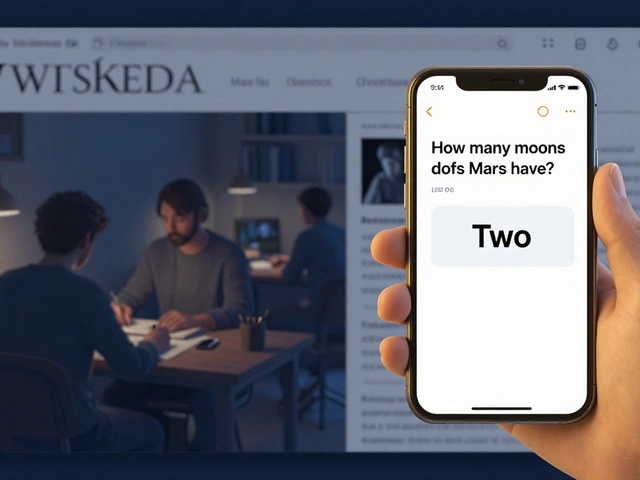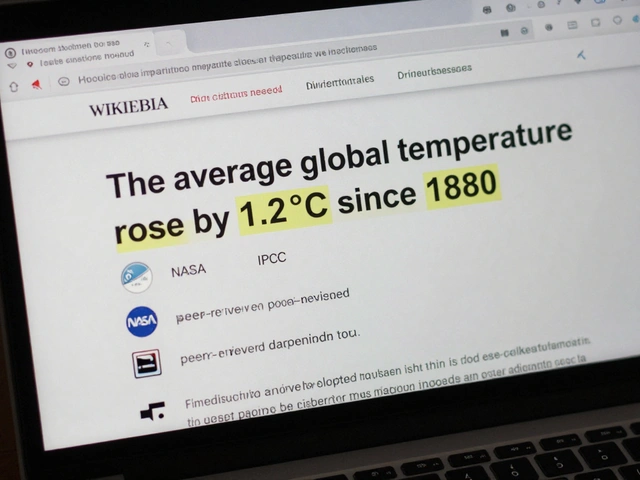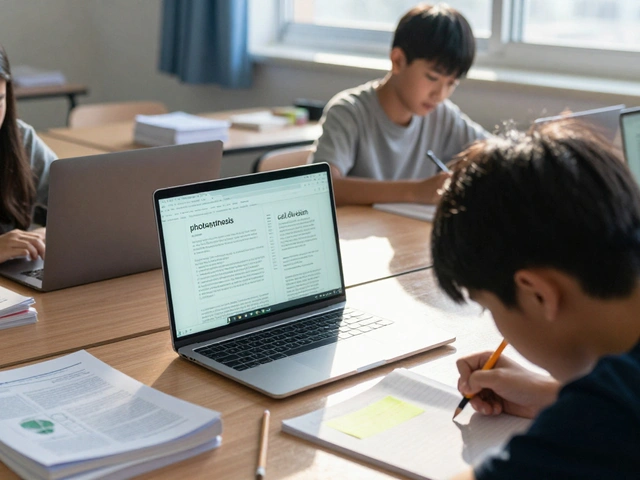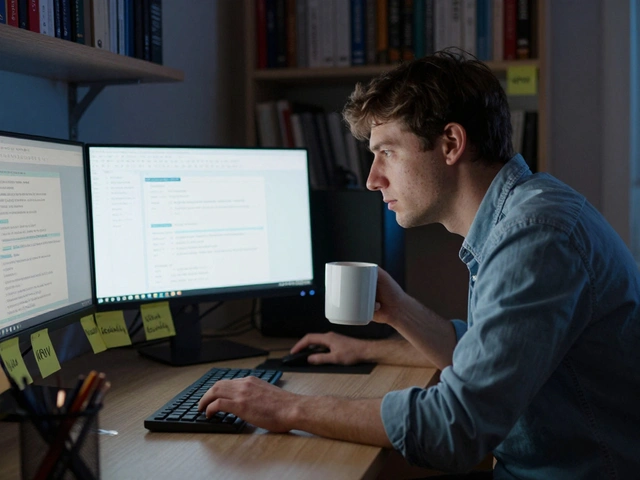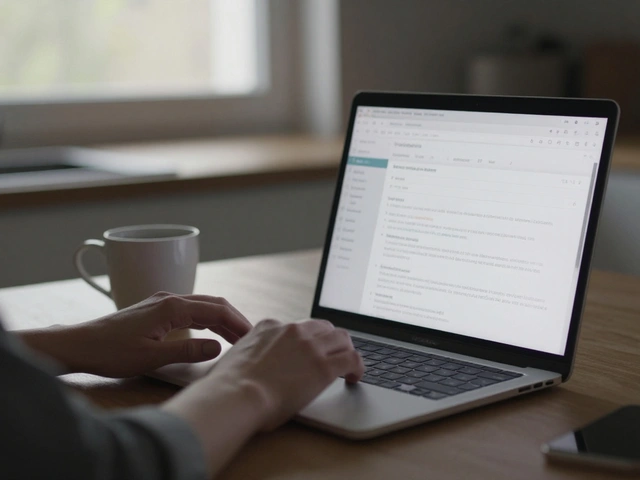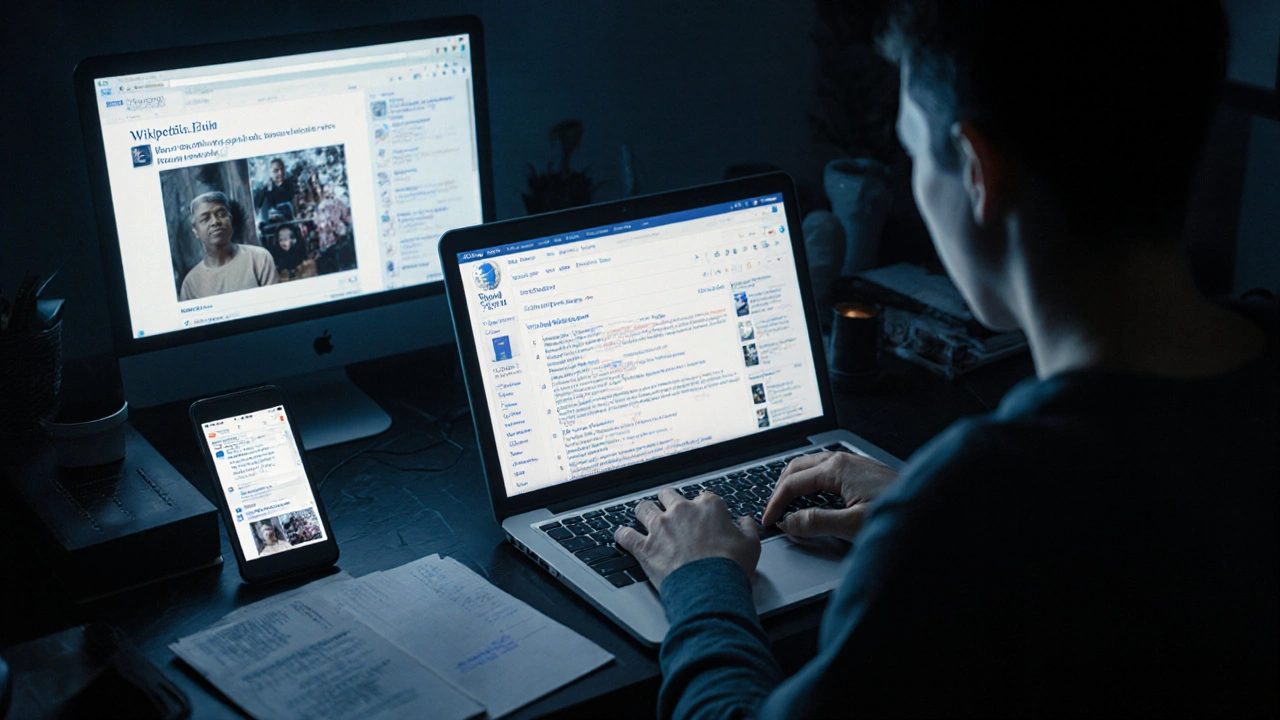
You’ve spent hours improving a Wikipedia article. You’ve cited sources, fixed errors, and cleaned up vandalism. Then you get a message-outside Wikipedia-threatening you, mocking your edits, or even sharing your home address. This isn’t just rude. It’s dangerous. And it’s happening more often than most people realize.
Off-wiki harassment isn’t rare-it’s targeted
Harassment that starts on Wikipedia doesn’t always stay there. Some vandals and trolls move their attacks to email, social media, or even physical mail. In 2023, the Wikimedia Foundation reported that over 1,200 editors filed formal reports of off-wiki harassment. That’s up 40% from 2021. These aren’t random trolls. Many are connected to organized groups targeting specific topics-political figures, historical events, or marginalized communities.
One editor in Germany received doxxed photos of her children after she corrected false claims about a local politician. Another in Canada got death threats via Twitter after removing misinformation about Indigenous land rights. These aren’t isolated incidents. They’re part of a pattern: when someone challenges false narratives on Wikipedia, they become a target.
Why does this happen?
Wikipedia’s open editing model makes it a battleground for truth. But that openness also makes editors visible. When you edit a page about a controversial figure, your username shows up in the history. Some people use tools to scrape those usernames and cross-reference them with public social media accounts. Once they find you, they stop attacking the article-and start attacking you.
It’s not about the edit. It’s about silencing you. The goal isn’t to fix a typo. It’s to make you quit. And it works. Studies from the University of Oxford show that 37% of editors who experience off-wiki harassment reduce their editing activity, and 14% stop editing entirely.
What counts as off-wiki harassment?
It’s not always obvious. Here’s what to watch for:
- Messages threatening violence or property damage
- Sharing your real name, address, phone number, or workplace
- Posting your personal photos or private messages online
- Coordinating mass reports or spam comments on your social media
- Creating fake profiles to impersonate you or spread lies about you
- Calling you or showing up at your home or workplace
If it happens outside Wikipedia and it’s meant to scare, shame, or stop you from editing, it’s harassment. It doesn’t matter if the message says “just kidding.” If it makes you feel unsafe, it counts.
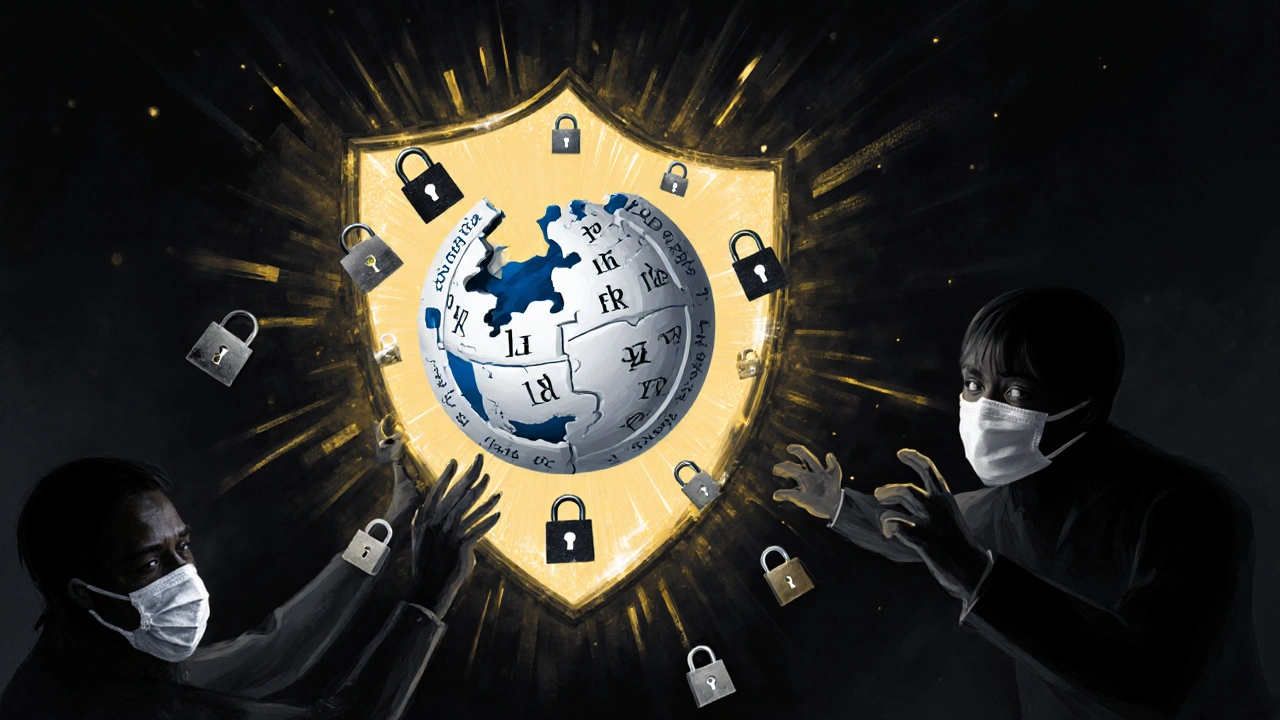
What to do immediately
When you’re targeted, time matters. Here’s what to do in the first 24 hours:
- Save everything. Take screenshots. Record URLs. Save emails. Don’t delete anything-even if it seems minor. This becomes evidence.
- Block and mute. Block the person on all platforms. Mute keywords like your username or real name on Twitter, Mastodon, or Reddit.
- Report to Wikipedia. Go to Wikipedia’s off-wiki harassment page and file a report using the official form. Include all evidence. The Arbitration Committee can restrict users even if they never edited Wikipedia.
- Enable two-factor authentication. If you haven’t already, turn it on for your Wikipedia account and any email linked to it.
- Update your privacy settings. Remove your real name, location, and workplace from public social media profiles. Use a pseudonym everywhere.
Don’t wait. Don’t hope it goes away. Harassers test boundaries. The longer you wait, the more emboldened they become.
How Wikipedia helps
Wikipedia isn’t just a website-it has legal and technical tools to protect editors. The Wikimedia Foundation has a dedicated team for editor safety. They work with law enforcement when needed. If you’re threatened with violence, they can help you contact local police and provide documentation.
They also offer:
- Anonymous editing options (using Tor or the Wikipedia app)
- Account protection (hiding your username from public logs)
- Legal support for defamation or doxxing cases
- Temporary blocks on users who attack editors off-wiki
You don’t have to handle this alone. The system exists to protect you. But you have to ask.
How to stay safe long-term
After the immediate crisis, focus on prevention:
- Use a separate email for Wikipedia editing-never your personal one.
- Never link your Wikipedia username to your real identity on other platforms.
- Use a password manager. Never reuse passwords.
- Set up Google Alerts for your real name and Wikipedia username. If someone starts posting about you, you’ll know right away.
- Join the Wikipedia Editor Safety Network. It’s a private group for editors who’ve faced harassment. They share tips, resources, and emotional support.
Some editors use VPNs or burner devices for sensitive edits. That’s not paranoia-it’s strategy. If you’re editing topics like far-right movements, religious minorities, or government corruption, assume you’re being watched.
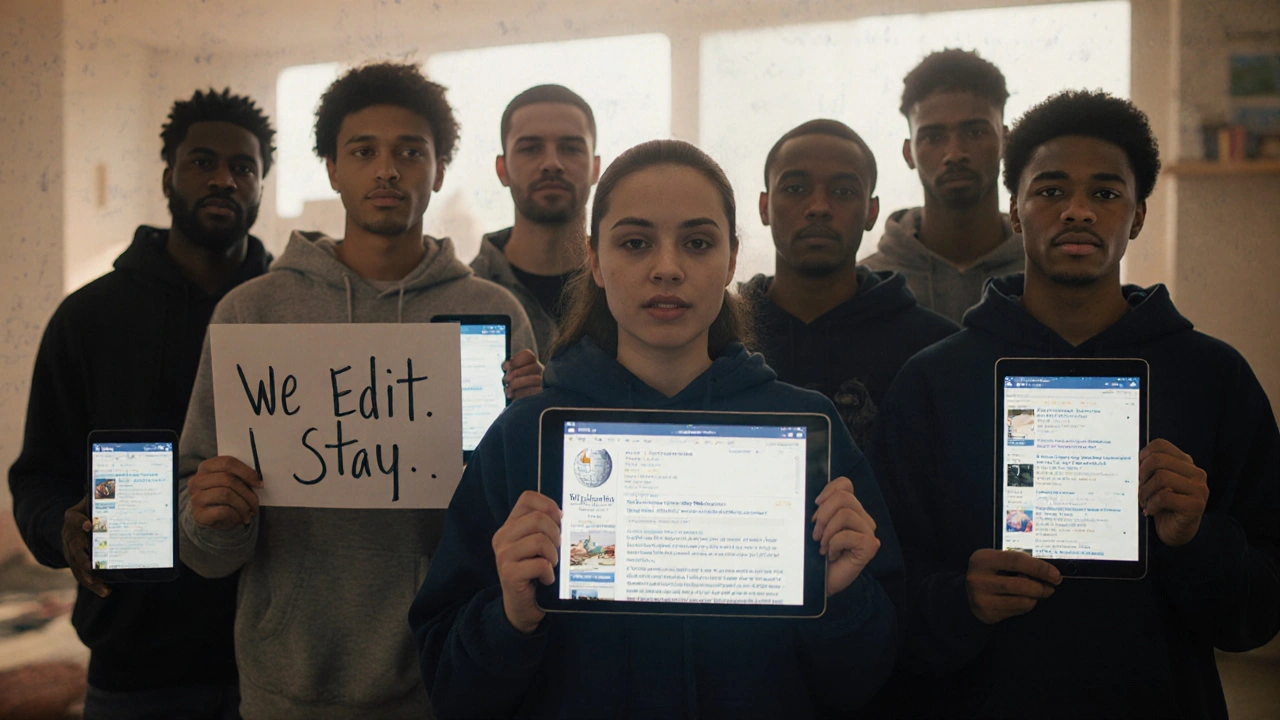
What not to do
It’s tempting to fight back. But here’s what never works:
- Replying to threats. Even saying “stop” gives them attention.
- Posting about it publicly on social media. That’s often what they want-to draw more people in.
- Trying to track them down yourself. That puts you at greater risk.
- Using your real name in Wikipedia edits. Ever.
Harassers thrive on reactions. Your silence is your shield.
When to involve law enforcement
If you’re threatened with physical harm, stalking, or identity theft, contact local police. Bring your screenshots, emails, and any other evidence. Many officers aren’t familiar with Wikipedia, so explain clearly: “This person is harassing me because I edit Wikipedia. They’ve shared my personal information and threatened me online.”
Wikipedia’s legal team can help you draft a formal report to send to authorities. They’ve worked with police in the U.S., Canada, Germany, and Australia. You don’t need to go it alone.
You’re not alone
Thousands of editors face this. You’re not weak for being scared. You’re not crazy for wanting to feel safe. Editing Wikipedia is a public service. But no one should have to risk their safety to do it.
The truth matters. But so do you. Protect yourself first. Then keep editing. The world needs your voice-not just your edits.
Can Wikipedia ban someone who harasses me off-wiki?
Yes. Wikipedia’s Arbitration Committee can block users even if they’ve never edited the site, as long as their off-wiki behavior targets editors. The Foundation can also request IP bans or legal action in severe cases.
Should I use my real name on Wikipedia?
No. Never. Using your real name increases your risk of doxxing and harassment. Wikipedia allows pseudonyms, and many top editors use them for safety. Your edits matter, not your identity.
What if I’m being harassed because of my edits on a political topic?
You’re not alone. Editors working on politics, religion, and history are the most targeted. Report the harassment immediately. The Wikimedia Foundation has protocols for politically motivated attacks. You can also request anonymous editing or temporary account protection.
Can I edit Wikipedia anonymously?
Yes. You can edit without creating an account. Your IP address will still be visible, but your identity won’t be linked. For higher-risk edits, use the Tor browser or a trusted VPN. Many editors use this method for sensitive topics.
Where can I get emotional support after being harassed?
The Wikipedia Editor Safety Network is a private, moderated group for editors who’ve faced harassment. It’s run by volunteers with experience in trauma support. You can apply through the Wikimedia Foundation’s safety portal. There are also mental health resources available through partner organizations like Crisis Text Line and the Electronic Frontier Foundation.
If you’re being harassed, don’t wait. Save your evidence. Report it. Reach out. You’re not just protecting yourself-you’re protecting the integrity of Wikipedia for everyone.
